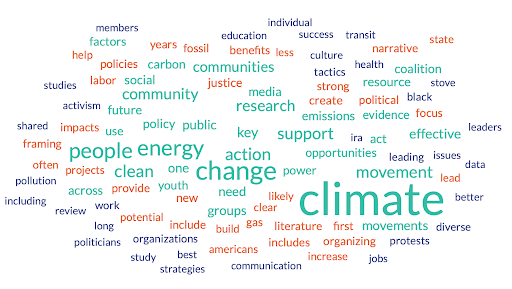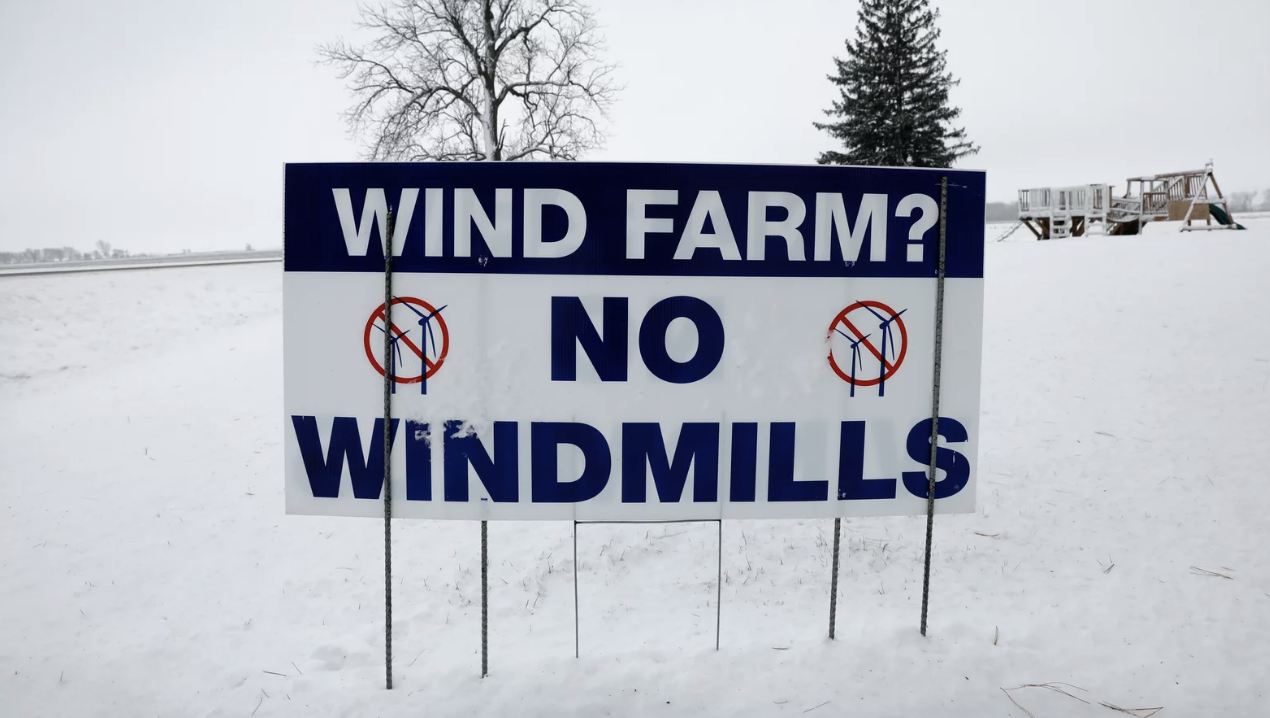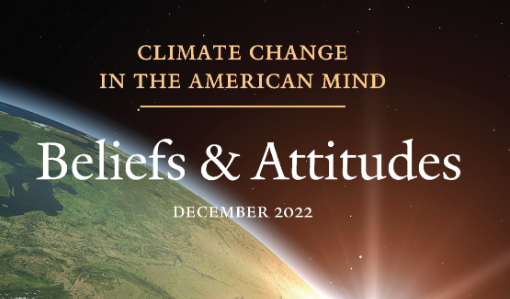Resources
Search below for resources covering the intersection of climate engagement, social science and data analytics.
RESULTS
CLIMATE REALITY ON-SCREEN: THE CLIMATE CRISIS IN POPULAR FILMS, 2013-22
In July 2023, as the world experienced its hottest day, week, month, and year in recorded history, UN Secretary-General António Guterres declared that “the era of global warming has ended” and “the era of global boiling has arrived.”1 The world is not acting quickly enough to respond to the pace of climate change. As NASA climate scientist Peter Kalmus observed, “we are losing Earth on our watch.” We are living through a crisis that touches every aspect of our lives, and therefore has a place in every contemporary story. Today, films set in the present or near future that do not include climate change can be considered what they are: fantasy. But there are too few studies examining whether popular films reflect our climate reality. This gap in knowledge prevents us from understanding climate visibility and represen- tation in popular entertainment, as well as the related challenges and opportunities. The Climate Reality Check, a Bechdel–Wallace Test for a World on Fire, pro- vides audience members, screenwriters, filmmakers, studios, and researchers with a straightforward way to evaluate whether climate change is represented—or omitted—in any narrative.3 This two-part, binary evaluation tool is simple, illuminat- ing, and powerful.
Environmental Polling Roundup - March 29th, 2024
This post includes climate and environment headlines, data points, and key takeaways from recent public polls - including new polling and research on the EPA's vehicle emissions rules, utilities, and people’s emotional responses to climate change.
HEADLINES
Notable research of 2023

Inflation Reduction Act
On Climate Disinformation
Freezing temperatures and skyrocketing energy costs are knocking on our doors again in Texas, and conversations about reliable renewable energy projects are once again emerging. This has us thinking quite a bit this week about what stands in the way of siting and building renewable projects that are now well funded, thanks to the Inflation Reduction Act. Inevitably we return to the conversation about the role of misinformation.
Environmental Polling Roundup - January 12th, 2024
This post includes climate and environment headlines, data points, and key takeaways from recent public polls - including new polling on a new report from Yale and George Mason’s “Climate Change in the American Mind” study and a new meta-analysis of polls tracing political polarization on climate and environmental issues.
Engaging Health Professionals on Climate
Climate change has significant impacts on health outcomes, and health professionals are uniquely positioned to leverage their voice as trusted messengers to engage their colleagues, patients, and communities to take action and shift the public conversation on climate and health.
Blueprint for a Multiracial, Cross-Class Climate Movement: The Report on Coalitions
Multiracial, cross-class (MRXC) coalition-building is essential if the climate movement is serious about tackling the climate crisis at the scale it demands. However, a historical lack of collaboration, trust, or healthy mechanisms to deal with conflict often impair those efforts. This Blueprint report and accompanying workbook provide an analysis of the difficulties MRXC climate coalitions are likely to face and offer recommendations for a proposed path forward.
Blueprint for a Multiracial, Cross-Class Climate Movement: The Workbook for Coalitions
This workbook is meant to help you translate the analysis and recommendations we provide there into workable features of your organizing. Whether you’re currently involved in a multiracial, cross-class climate coalition, thinking about starting one, or evaluating a past coalition on reflection, we hope this workbook clarifies for you and your coalition partners the breadth of considerations and decisions you should be prepared for.
Climate Change in the American Mind: Beliefs & Attitudes, December 2022
The steady majority of Americans recognize that humans are causing global warming, and nearly half say that they’ve been personally impacted. Americans also tend to believe that global warming is affecting the weather, especially in the cases of extreme heat, droughts, and wildfires. Americans who recognize that global warming is happening outnumber those who deny that it’s happening by a greater than four-to-one margin (70% to 16%). 63% of Americans say they feel a personal sense of responsibility to help reduce global warming. Three in five Americans (60%) recognize that global warming is affecting weather in the United States; when asked about specific types of extreme weather, more than two-thirds agree that global warming is affecting extreme heat (70%), droughts (70%), wildfires (70%), and water shortages (68%). Nearly three in five Americans (58%) recognize that global warming is mostly caused by humans.
Climate Change in the American Mind: Politics & Policy, December 2022
Americans’ climate attitudes are continuing to grow more polarized, but bipartisan majorities support clean energy and conservation efforts. 79% of voters support funding more research into renewable energy sources. 79% of voters support generating renewable energy on public lands. 68% of voters support increasing federal funding to low-income communities and communities of color who are disproportionately harmed by air and water pollution. 66% of voters support transitioning the U.S. economy from fossil fuels to 100% clean energy by 2050. 65% of voters say that developing sources of clean energy should be a “high” or “very high” priority for the president and Congress. 62% of voters support requiring electric utilities to produce 100% of their electricity from renewable energy sources by 2035. 55% of voters support a U.S. president declaring global warming a national emergency if Congress does not take further action.
Pagination
- Page 1
- Next page



